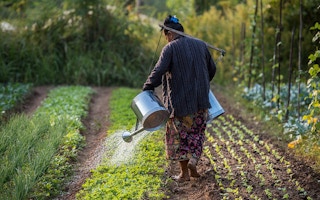With agricultural land thirsty and water increasingly scarce, the United Nations agricultural agency hosted on 19 January an international event to discuss the use of municipal liquid waste for farming.
“Properly managed, wastewater can be used safely to support crop production – directly through irrigation or indirectly by recharging aquifers – but doing so requires diligent management of health risks through adequate treatment or appropriate use,” the Food and Agricultural Organization said in a press release.
Sound management of wastewater in agricultural production is the focus of a discussion by a group of experts on 19 January in Berlin, Germany, at the opening day of the annual Global Forum for Food and Agriculture. The Forum – this year organised around agriculture and water – has been convened by FAO, along with the United Nations University, the UN Educational, Scientific and Cultural Organization (UNESCO), and the Leibniz Research Alliance.
“
Although more detailed data on the practice is lacking, we can say that, globally, only a small proportion of treated wastewater is being used for agriculture, most of it municipal wastewater.
Marlos De Souza, senior officer, UN Food and Agriculture Organization’s Land and Water Division
“Although more detailed data on the practice is lacking, we can say that, globally, only a small proportion of treated wastewater is being used for agriculture, most of it municipal wastewater,” said Marlos De Souza, a senior officer with FAO’s Land and Water Division.
The use of water recycling is already being used by some small farmers and has shown successful results near cities where wastewater is widely available and inexpensive.
An increasing number of countries are now exploring its use on a larger scale. Among these Egypt, Jordan, Mexico, Spain and the United States.
Participants at the Berlin event will also discuss how to manage risks. The biggest concern is proper treatment of the wastewater, often contains microbes and pathogens, chemical pollution, antibiotic residues, and other threats to the health of farmers, food chain workers, and consumers.










